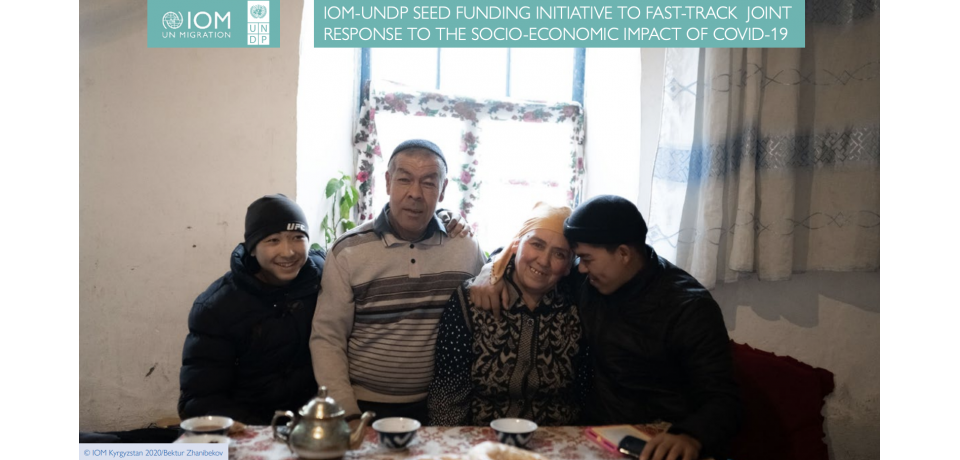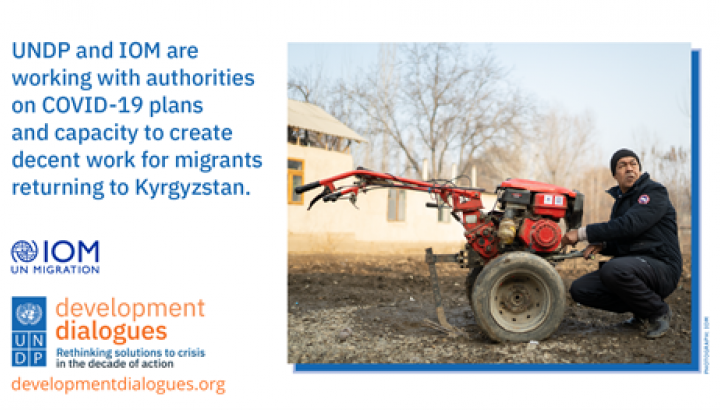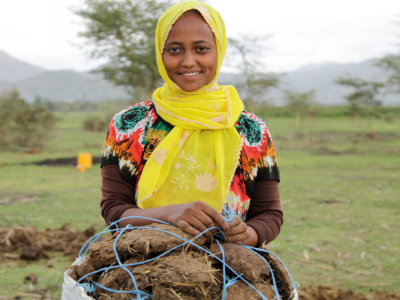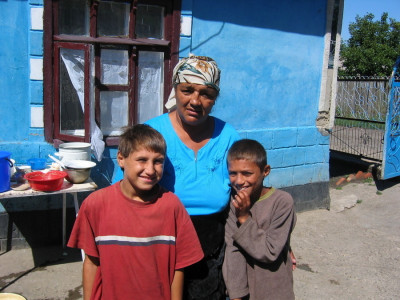Local authorities’ perceptions towards returned migrants in Kyrgyzstan
Oxana Maciuca, UNDP Kyrgyzstan, oxana.maciuca@undp.org
Nazgul Chubarova, IOM Kyrgyzstan, nchubarova@iom.int
Related Sustainable Development Goals and Global Compact for Migration Objectives
Summary
To tackle numerous pandemic-induced challenges on human mobility in Kyrgyzstan, UNDP and IOM joined efforts to identify the main issues faced by returnees and co-design joint solutions in a timely manner, working together towards a larger country-wide migration agenda.
In a country with over 1 million of its people abroad, the need for such an intervention occurred as a result of the COVID-19 pandemic’s profound impact on migration patterns, as an estimated 150,000 migrants have returned during the pandemic due to socio-economic challenges in the principal destination countries. Urgent action was needed to support numerous Kyrgyzstani migrants who lost their jobs in destination countries and had to return home, as well as the communities of origin absorbing these large-scale returns.
This project is part of the IOM-UNDP seed funding initiative to fast-track joint response to the socio-economic impact of COVID-19.
Key objective
The objective of the initiative was to increase the understanding of the needs of returned migrants, the attitudes and readiness of local authorities to effectively reintegrate them, as well as the capacity building needs for a sustainable recovery from COVID-19.
Main activities
Recognizing that data is essential to devise effective national and local recovery policies, UNDP-IOM conducted an assessment of ten local communities from four areas affected by migration in the country. This included gathering knowledge of migrants’ challenges and specific needs upon return, the role of local authorities and their readiness to reintegrate them, as well as the capacity needs for sustainable recovery from COVID-19. Such an investment is essential for resilient recovery and building social cohesion in local communities. The assessment was based on research, analysis and evidence-based policy support to improve social cohesion and include returnees’ specific needs in local and national socio-economic responses/recovery action plans.
Key successes or innovative factors, good practices and lessons learned (if available)
There are numerous challenges faced by migrants upon their return back home, but a very low level of reintegration support from local governments to returnees, made worse by COVID-19 and a systemic lack of local reintegration and support mechanisms. As a result, migrants have a low level of trust towards local governments, as compared to their trust towards other local actors.
However, 100% of local authorities revealed strong eagerness to work with migrants, support their reintegration back home and engage them in local development (if properly capacitated). There is therefore a strong need to support migrants during all stages of migration and especially support local authorities to establish mechanisms for reintegration. In addition, even though it was not in the scope of the assessment, the survey provided some positive and surprising insights on the engagement of migrants in local development.
80% of migrants showed a strong interest to engage in local development by investing at home, subject to more transparency, communication, partnership, mutual trust with local governments and proper guidance on available investment opportunities. Yet there is no existing mechanism to engage migrants effectively in encouraging investment in local development.
Beneficiaries
Returnees, local authorities




